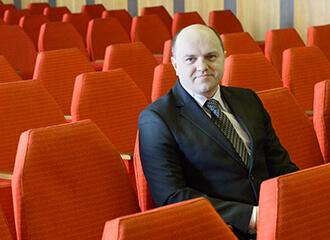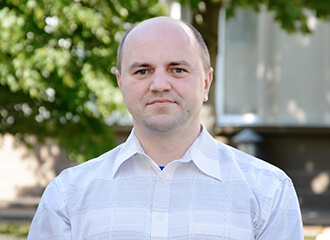На русском языке:
Мнение. Егор Лебедок об отправке беларусских специалистов в Сирию
На беларускай мове:
Меркаванне. Ягор Лебядок пра адпраўку беларускіх спецыялістаў у Сірыю
Columnist Yahor Lebiadok published a post in his telegram channel, in which he talks about sending Belarusian military specialists to Syria. We quote the opinion unchanged.
The draft Agreement between the Government of the Russian Federation and the Government of the Republic of Belarus on Cooperation in the Field of Humanitarian Assistance to the Syrian Arab Republic regulates the participation of the Belarusian military contingent together with Russian units to provide humanitarian assistance in Syria. We are not talking about the delivery of humanitarian aid, which Belarus supplied in the amount of at least 2.6 million rubles in 2017-2021, but about sending «specialists of the Republic of Belarus involved in humanitarian assistance activities» (this is the definition of the «Belarusian military contingent» in the Agreement).
The Agreement states that the Belarusian military contingent of up to 200 people will be involved in carrying out activities exclusively for humanitarian purposes outside the combat zone, while the contingent is deployed in the places of dislocation of the Russian aiviagroup (now it is the base in Khmeimim, the al-Shayrat airfields in the province of Homs and Tiyas in Palmyra, the base in al-Qamishli).
Humanitarian assistance is, first of all, humanitarian demining and medical support for military contingents and the civilian population.
Armenia sent specialists with a similar mission in 2019, while, taking into account the provisions of the Constitution of Armenia, the Minister of Defense of this country noted: there is no question of using the troops of the Armed Forces of Armenia outside its borders, even in the case of sappers, we are not talking about military sappers, but about specialists in humanitarian demining. Although the Belarusian contingent contains the word military, nevertheless, the definition contains only «specialists», citizens of Belarus.
The reason for sending the Belarusian contingent is the invitation of the Syrian side, and Belarus can also refer to the UN Security Council resolutions in this matter, in particular, No. 2401 of 2018. The issue of the status of the Belarusian contingent in Syria is interesting: according to the Agreement, it is determined by separate international treaties between Belarus and Syria. Currently, there are no treaties with Syria in the legal framework that would determine the status of the Belarusian contingent, as well as there are no drafts of these treaties or regulations authorizing the body to sign. Over the past year, only the meeting of Golovchenko with Suhail Abed al-Latif, the Minister of Public Works and Housing of Syria, on January 28, 2022 is noteworthy of all the recent meetings of representatives of Belarus and Syria.
As for the number of the Belarusian contingent, it is absolutely possible for Belarus. For comparison, Armenia sent 83 specialists in 2019. Since 2010, more than 50 Belarusian servicemen have gained practical experience in carrying out peacekeeping tasks as part of the UN Interim Force in Lebanon, most of them doctors. Therefore, doctors with experience in peacekeeping activities, as well as, in particular, from the Republican Center for the Treatment of Gunshot Wounds and Mine-Explosive Injuries, can be sent to Syria. Armenia sent therapists, gynecologists, pediatricians and doctors of other specialties to Syria, probably such civilian specialists can go from Belarus.
On November 1, 2019, at the mine countermeasures service base of the 2nd Engineering Brigade (Sosny), a mine countermeasures center of the Armed Forces was formed, which is designed to train and improve the skills of military specialists to perform demining tasks, including humanitarian. 703 servicemen were trained during the two years of the center’s operation. Talks about sending Belarusian servicemen to Syria actively arose about a year ago. And here it is appropriate to recall that in December 2020, a humanitarian demining unit was created. The detachment neutralized almost 25 thousand explosive objects, carried out a complete cleaning of more than 100 hectares of the territories of Belarus (for comparison, for almost three years of being in Syria, specialists of the Center for Humanitarian Demining and Expertise of Armenia found and neutralized 594 unexploded ordnance and 88 hectares of territory; although it is one thing to demine a warehouse with thousands of relatively safe ammunition of the Second World War, and other ammunition, which may be trapped and likely to be fired upon).
The servicemen of the detachment were trained at the International Mine Action Center of the Armed Forces of Russia (Nakhabino), which accumulates experience in mine clearance in various countries of the world, including Syria. Groups of Belarusian servicemen were trained at the said Russian center in 2019, the last group of 27 people completed training on humanitarian demining and countering improvised explosive devices programs on January 25, 2022.
Also, at the mine action center of the Armed Forces of the Republic of Belarus base, interaction on demining issues with representatives of other troops and military formations of Belarus is carried out. At the mine countermeasures service of the Armed Forces base, classes were held with the Alpha group of the KGB, the Almaz group of the Ministry of Internal Affairs, the Presidential Security Service.
Thus, Belarus has enough personnel with serious theoretical and practical experience to send a contingent of 200 people for the purpose of a humanitarian mission.
But there is one issue with the humanitarian contingent – ensuring its safety. The security of the Russian aviation group is formally and officially provided by the military police of the Russian Federation. The Armenians, together with their doctors and sappers, also sent a train to ensure their safety. Цe also have no problem in finding servicemen for these purposes – special detachments of the Special Operations Forces or officers and contractors of other units of the Special Operations Forces, units of the Internal Troops, etc., it depends on the tasks. Actually, they can connect, as they do around the world, quasi-private structures like Gardservice.
Of course, no one will send conscript soldiers. There is no sense from them there and the competition of soldiers under contract for a place out of these 200 will not be small. The principle of the Russian military works quite well here: a business trip to Syria in non-combat units, especially in high positions, is good money, benefits and facilitation of career growth.
Delivery to Syria, material and technical support of the Belarusian military contingent is carried out under the Agreement by Russia free of charge. Also, at the request of the Belarusian side, Russia is training the Belarusian military contingent planned to leave for Syria. It is noteworthy that the military-political work with the Belarusian military contingent is organized by the Russian side.
The composition, number, organizational and staff structure of the Belarusian military contingent are coordinated with the Ministry of Defense of the Russian Federation. Although the Belarusian military contingent is under the command of the Ministry of Defense of Belarus according to the Agreement, but on the territory of Syria it is operationally subordinate to the Center of the Russian Federation for Reconciliation of the Warring Parties and Control over the Movement of Refugees in the Territory of the Syrian Arab Republic. That is, the Belarusian contingent in Syria will be subordinate not to the government or the Ministry of Defense of Syria, but to the center of the Russian armed forces. Regarding Armenian specialists in 2019, the Minister of Defense of Armenia noted: «I want to emphasize that a group of our specialists will act under the command of the Ministry of Defense of Armenia. Naturally, the group will coordinate its actions with the Russian side and with local authorities.»
Armenia’s motivation to send its contingent to Syria was not only, and not so much due to political interaction with Russia, but to support the large Armenian community in Aleppo, which was in a serious humanitarian crisis (where the Armenian contingent of specialists is located). Naturally, there is no such Belarusian diaspora in Syria. Lukashenka motivated the sending of Belarusian servicemen to Kazakhstan within the framework of the CSTO as follows: «Therefore, if we are in the union, then we will have to act with the union, especially during this tough times.»
We are not in alliances with Syria and there is no CSTO peacekeeping (humanitarian) mission in Syria. Today Lukashenka said that «the Syrian leader, the Syrian government asked us to help with doctors» (I doubt whether only with doctors, of course; here it is appropriate to mention that according to the agreement, Russians provide the Belarusian military contingent with missiles, ammunition, military equipment). That is, Belarusian specialists will go, as Lukashenka voiced, at the request of Syria. To what extent the potential death of Belarusian specialists in Syria (although such an unlikely one) is justified is the question.
When speaking about the referendum at the meeting of the Security Council, Lukashenka took his eyes from the paper and commented on the sending of Belarusian specialists to Syria. He presented it in the classic style of saving face when playing badly. They say that in order to influence the referendum and Lukashenka, they created a fake that Russia sends the Belarusian military to Syria, and this is impossible without the decision of the President of Belarus and he did not send anyone. Then Lukashenka declares that there is such a thing, we are talking about helping doctors for a long time and they say, we will help as much as we can. All the main «bandit» media quite adequately wrote the news on the basis of the presented draft Agreement, for what purposes, who and on what terms sends, simply reprinted excerpts from the Agreement, no fakes that it is Russia sending or what else was not written. This is not the first time that Belarusians have learned about military-political cooperation and other issues of interaction with Russia affecting the territory of Belarus or Belarusian servicemen from the legal framework of Russia or from Russian officials, and not from Belarusian ones. So it is in this case. Instead of discussing with the Belarusian society the expediency of sending our specialists before the appearance of such a document, everything is hidden, and when news suddenly appears, there are statements about fakes to divert attention from silence.
The same applies to the current drills. Instead of covering dances and songs in front of Russian servicemen at the training grounds, the press service of the Ministry of Defense had better covered really important military-political news with pre-emption, and not to hide everything. Then the possibility of fakes to appear is minimized. But here is a well-known problem of authoritarian regimes: the press services of state bodies in such systems cannot fully function in principle, since they depend on one person or group of persons, and this determines both the reaction time and the restriction of information.
The presence of the Belarusian military contingent in Syria is most beneficial for the Russian Federation.
This will give greater, let’s say, political weight and legitimacy at the international level to its actions in Syria, i.e. it will show not the individual, but the collective nature of the measures it takes in Syria, since there will be three countries – Russia, Armenia and Belarus – all the countries of the CSTO bloc. Such representation of the countries makes it possible to reformat Russian actions in Syria into a peacekeeping (humanitarian) operation of the CSTO, which will be of much-needed political importance for the organization and, as it were, a continuation of the «peacekeeping activities» launched in Kazakhstan.
For Lukashenka, the benefit may be indirect, i.e. some political and economic preferences on the part of Putin for Lukashenka for such support in Syria. It will also allow Belarusian specialists to gain good experience. For the Syrian people, the benefit will be in the demining of territories and the provision of medical assistance. Since the planned contingent of Belarusian forces in Syria is small and aimed at humanitarian activities, this will not change at least somehow noticeably military-political balance of forces in the Syrian conflict.


